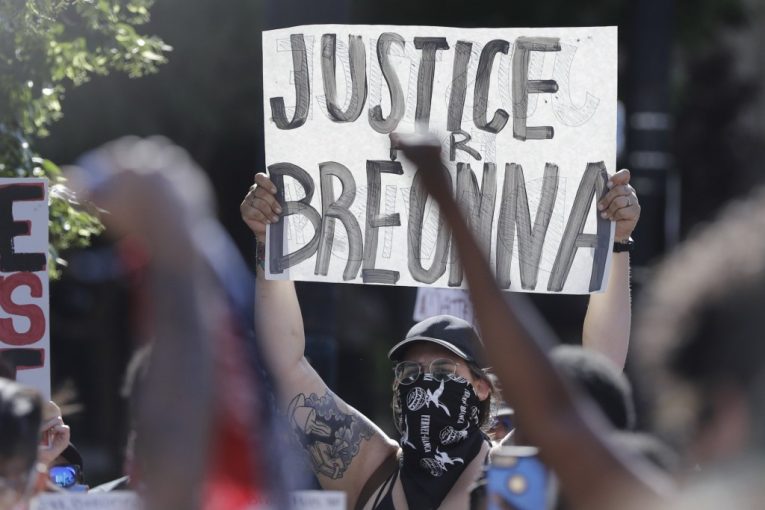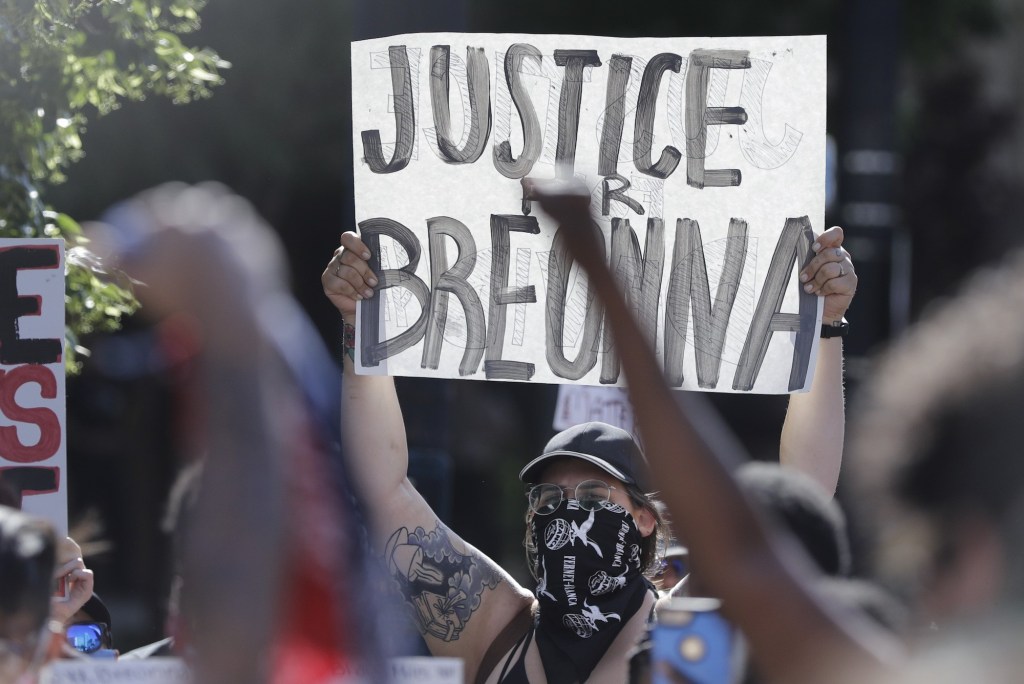

By Benjamin Porter and Cassie Larson
LOUISVILLE, KY – A new lawsuit filed on behalf of the family of Breonna Taylor alleges that the Louisville Metro Police Department might have lied and misled regarding the existence of police body camera videos from the night of Breonna Taylor’s death, and that the police might still be withholding such footage.
Attorneys Sam Aguiar and Chymez Bradshaw explain in the new lawsuit that evidence suggests that body camera footage from during the execution of the no-knock warrant that led to Taylor’s death likely does exist, and that Metro have failed to provide the records after their initial request on June 1, 2021.
Thus, Chymez and Bradshaw are now requesting an injunction ordering the defendant, Louisville Mayor Greg Fischer, to disclose the requested public records and for an expedited briefing schedule and a hearing on the matter to occur as soon as possible.
The suit states that after the death of Taylor, Metro “indicated that there was no footage of the incident or the circumstances leading up to the shooting.” Metro has also said that many of  the members of LMPD present for the raid either “did not have body cameras issued or otherwise did not activate their cameras.”
the members of LMPD present for the raid either “did not have body cameras issued or otherwise did not activate their cameras.”
But this is a point of contention.
Aguiar and Bradshaw write that while the general public has been led to believe that manual activation is the only method by which police body cameras can be controlled to start and stop recording, the Axon Flex 2 model used by the LMPD can in fact be turned on and off by a second method since it is compatible with signal technology using a Bluetooth connection.
Because most of the marked and unmarked police vehicles at the scene were equipped with a signaling unit that had their “lightbars” activated during the raid, then signals would have been sent that would have automatically activated the body cameras of nearby police officers, within a range of about 30 feet.
One officer in a vehicle with the lightbar activated “pulled his vehicle to a location which had James, Cosgrove, Campbell, Mattingly, and Hoover nearby.” Those are the officers who were directly involved in the shooting of Taylor.
If the body cameras were docked and stored properly after the incident, with “no tampering of the devices or associated storage prior to the docking,” then “audit trails should assist in verifying whether Metro has been truthful to the public regarding the existence of the footage,” the lawsuit states.
“Simply put, it would have been difficult for most of the LMPD members with body cameras and who were associated with CID events at Breonna’s and/or Elliott Ave. on March 12/13, 2020 to not have had their Axon body cameras activated at one point or another,” the lawsuit states.
On June 1, 2021, Aguiar and Bradshaw made an open records request to Metro for the audit trail logs for the body cameras of several LMPD members for usage in March 2020.
Unless the public record is “in active use, in storage or not otherwise available,” the custodian of the record must designate a “place, time, and date for inspection” of the record no more than five days after the receipt of the application.
If this does not happen within five days, then the custodian must provide a detailed explanation of the cause for delay and specify the earliest date that the record will be available for inspection.”
However, their request was not acknowledged until June 11, when John A. Slone, a paralegal for the LMPD Open Records Division, said he had emailed their IT department about the request and was waiting to hear back. Three days later, on June 14, Slone informed Aguiar and Bradshaw that IT said it would “take three weeks to fulfill your request.”
Despite contending that “pulling audit trails is not a lengthy or time consuming task,” Bradshaw and Aguiar decided not to raise an objection to the identified delay given that they had requested the audit trails for “numerous” officers.
But on July 6, 2021, the three week period lapsed with Metro failing to provide the records.
According to the lawsuit, “Metro has not complied with its own unilateral extension for production of the records” and “Metro has not cited any KRS 61.878(4) exemptions [under the Open Records Act] and has no legitimate grounds to do so.”
Toward the end of the suit, Bradshaw and Aguiar emphasize that they have “met their obligations” under the Open Records Act and that examining these records, especially for a case of such “local, national and worldwide concern” is in the public interest, “even though such examination may cause inconvenience or embarrassment to public officials or others.”

